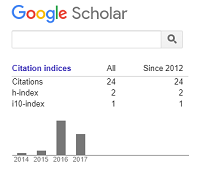Game-Based Learning Media For Number Topic: Analysis And Design
DOI:
https://doi.org/10.18592/jpm.v8i2.5749Keywords:
Game-Based Learning, Media Learning, Number TopicAbstract
This study aims to describe the preliminary analysis on the development of game media and see the student's preliminary response to the developed game-based mathematics learning media that is oriented to the learning outcomes of junior high school students. Several previous research results have shown that game-based learning media can improve students' mathematics learning outcomes. The development of learning media is based on the ADDIE development model which consists of five stages, namely, analysis, design, development, implementation, and evaluation. The respondents in this study were junior high school students totaling 122 people. Students are given a questionnaire related to game development. The questionnaire consists of 5 closed statement questions, with 4 answers on a Likert scale, namely strongly agree, agree, disagree, strongly disagree. The results show that most students agree that game learning media is needed in number topic, game learning media that can be played on mobile phones will make students easier to learn, the display of the game media is attractive, the color combination in the game media is interesting, and the characters in the game media are interesting.References
Abdurahman, M. 2003. Pendidikan bagi anak berkesulitan belajar. Jakarta: PT Rineka Cipta.
Anikina, O. V., & Yakimenko, E. V. 2015. Edutainment as a modern technology of education. Procedia-Social and Behavorial Sciences, 166, 475-479. http://doi.org/10.1016/j.sbspro.2014.12.558
Branch, R. M. 2009. Instructional design: the ADDIE approach. New York, NY: Springer.
Carbonaro, M., Cutumisu, M., Duff, H., Gillis, S., Onuczko, C., Schaeffer, J., ... & Waugh, K. 2006. Adapting a commercial role-playing game for educational computer game production. GameOn North America, 13.
Charsky, D. 2010. From edutainment to serious games: a change in the use of game characteristics. Games and Culture, 5(2), 177-198. http://doi.org/10.1177/1555412009354727
Chen, M. P., & Ren, H. Y. 2013. Designing a RPG game for learning of mathematic concepts. Second IIAI International Conference on Advanced Applied Informatics, 217-220. http://doi.org/10.1109/IIAI-AAI.2013.51
Foti, M. K., & Mendez, J. 2014. Mobile learning : how students use mobile devices to support learning. Journal of Literacy and Technology, 15(3), 58–78. ISSN: 1535-0975.
Giannakos, M. N., Chorianopoulos, K., Jaccheri, L., & Chrisochoides, N. 2012. “This game is girly!” Perceived enjoyment and student acceptance of edutainment. E-Learning and Games for Training, Education, Health and Sports (pp. 89-98). Springer, Berlin, Heidelberg.
Juniati, E. 2017. Peningkakan hasil belajar matematika melalui metode drill dan diskusi kelompok pada siswa kelas VI SD. Jurnal Pendidikan dan Kebudayaan, 7(3), 283-291.
Kebritchi, M., Hirumi, A., & Bai, H. 2010. The effects of modern mathematics computer games on mathematics achievement and class motivation. Elsevier, Computers & Education, 55, 427-443. https://doi.org/10.1016/j.compedu.2010.02.007
Kemdikbud. 2016. Peraturan Menteri Pendidikan dan Kebudayaan Nomor 24 Tahun 2016 Tentang Kompetensi Inti dan Kompetensi Dasar Pelajaran pada Kurikulum 2013 pada Pendidikan Dasar dan Pendidikan Menengah. Jakarta, Indonesia.
Lowrie, T., & Jorgensen, R. 2011. Gender differences in students’ mathematics game playing. Computers & Education, 57(4), 2244-2248.
National Council of Teachers of Mathematics. 2000. Principles and standards for school mathematics. Reston, VA: NCTM.
Panggabean, S., & Sumardi, H. 2018. Pengaruh metode drill terhadap hasil belajar matematika siswa SMP pertiwi medan. Jurnal MathEducation Nusantara, 1(1), 89-96.
Pareto, L., Arvemo, T., Dahl, Y., Haake, M., & Gulz, A. 2011. A teachable-agent arithmetic game’s effects on mathematics understanding, attitude and self-efficacy. International Conference on Artificial Intelligence in Education, Springer, Berlin, Heidelberg, 247-255.
Roestiyah. 2012. Strategi belajar mengajar. Jakarta: PT Rineka Cipta.
Setyaningrum, W. & Waryanto, N. H. 2017. Media edutainment segi empat berbasis android: apakah membuat belajar matematika lebih menarik? Jurnal Mercumatika: Jurnal Penelitian Matematika dan Pendidikan Matematika, 2(1). https://doi.org/10.26486/jm.v2i2.369
Staalduinen, J. P. 2010. Gamers on games and gaming implications for educational game design. Delft, Netherlands: Delft University of Technology.
Winarko, E. 2017. Pembelajaran matematika berbasis TIK untuk meningkatkan literasi matematika: Peluang dan tantangan. Prosiding Seminar Nasional Matematika dan Pendidikan Matematika, Universitas Negeri Yogyakarta, Yogyakarta, Indonesia.





